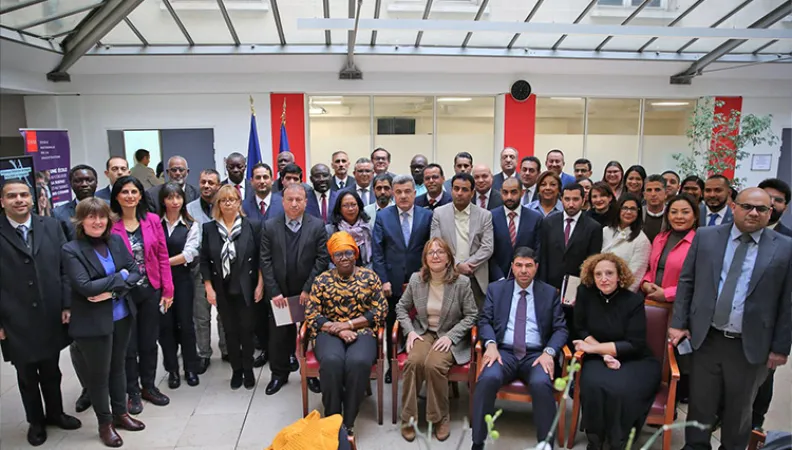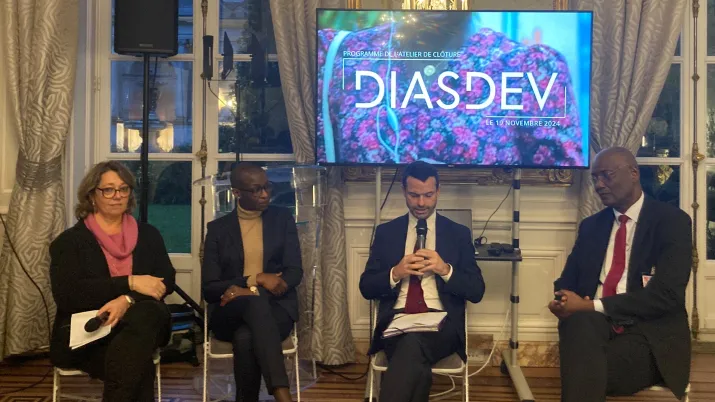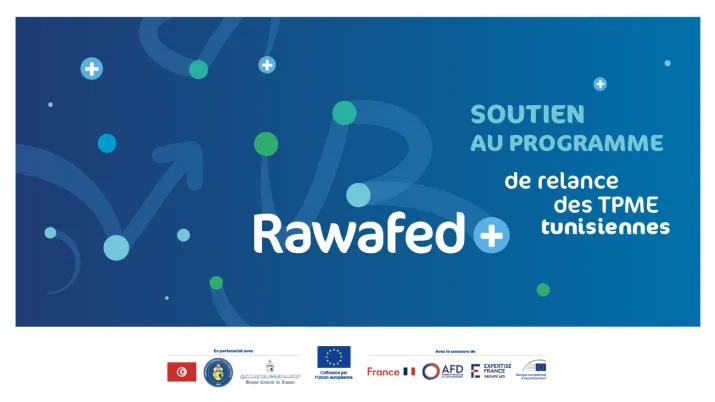Share the page
Sharaaka
Project
Published on

-
Project start date
-
Status
Ongoing
-
Project end date
-
-
Financing amount (Euro)
-
€0.36M
-
Country and region
-
Libya, Africa
-
Partners
-
Criminal Research and Training Centre in Libya
This project aims to strengthen the Libyan judicial system by developing the professional capabilities of the General Attorney Office.
Sharaaka: enhancing Libya’s judicial system
The Sharaaka project aims to strengthen the Libyan judicial system by enhancing legal training, judicial governance, and international legal cooperation. It contributes to building the professional capabilities of the General Attorney Office to enable it to carry out its assigned tasks.
This one-year project is funded by the French government and implemented by Expertise France, in collaboration with the Criminal Research and Training Centre and the French Institute for Judiciary.

Project objective: providing specialized training for stakeholders in the legal system
The Sharaaka project puts the emphasis on training issues to meet the needs of the legal sector in Libya. It contributes to:
- Strengthening the capacity within the Libyan judicial system to ensure efficiency, fairness and transparency in the administration of justice.
- Enhancing the expertise of the Criminal Research and Training Centre in key areas such as counterterrorism, organized crime, economic and financial crimes, corruption and combating criminal networks.
- Supporting various stakeholders, including court staff, through the provision of specialized training and continuing education.
- Building the capacity of the Criminal Research and Training Centre to comply with legal standards, process international legal assistance requests and improve prison management.
- Integrating human rights education into training programmes, with a particular focus on minors and prisoners.
- Connecting the first party with the French Institute for Judiciary, and supporting in building a sustainable partnership.
An overall training strategy
The project is divided into four main lines of actions to provide comprehensive training to legal stakeholders.
- Assessing judicial training needs
A self-assessment of the training needs will be prepared and conducted among employees of the Criminal Research and Training Centre, in collaboration with the French Judicial Institute.
It includes identifying key training topics such as counterterrorism, organized crime, economic and financial crimes, corruption, and combating criminal networks. It also involves selecting the participating team and initiating formal cooperation with the French Judicial Institute.
- Organizing short-term training courses with French experts
These courses will focus on judicial training institute governance, judicial digitization, international mutual assistance in criminal matters, evidence related to terrorism, asset confiscation, and judicial administration. The training will be delivered by experts visiting from the French Judicial institute and tailored to the local context.
- Arranging study visits to France for advanced legal training
Study trips will be organized to visit the French Judicial Institute. They will feature training sessions on topics such as organized crime and judicial cooperation, cultural property trafficking, advanced corruption detection and prevention, advanced judicial training institute governance, and international arbitration.
- Sharing of experience and recommendations
A summary of the academic curricula developed during the training will be shared with the Criminal Research and Training Centre for future use.
The project will culminate in presenting results, evaluating the experience, and delivering a final report with recommendations.
Similar Projects
Regenerative nature-based tourism development
Ongoing
2025 - 2029
Funders : European Union, German State







